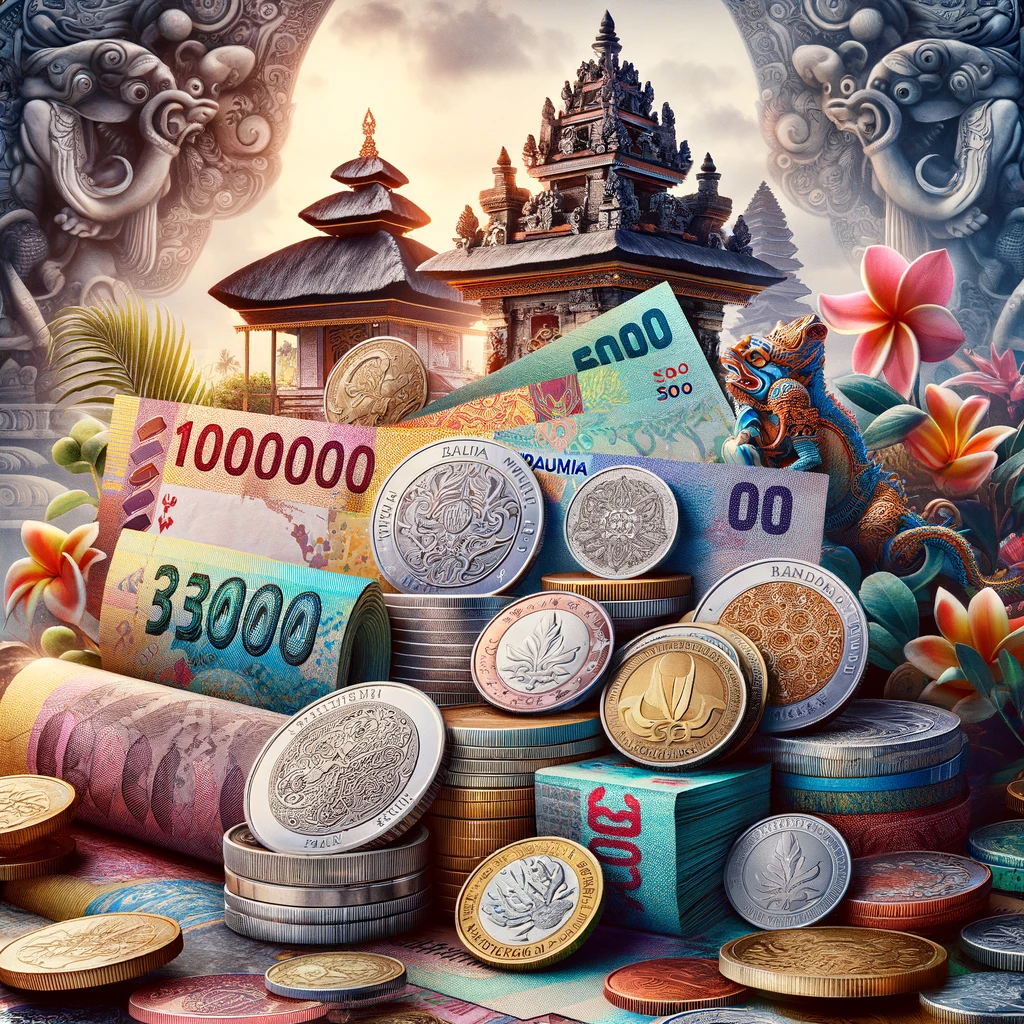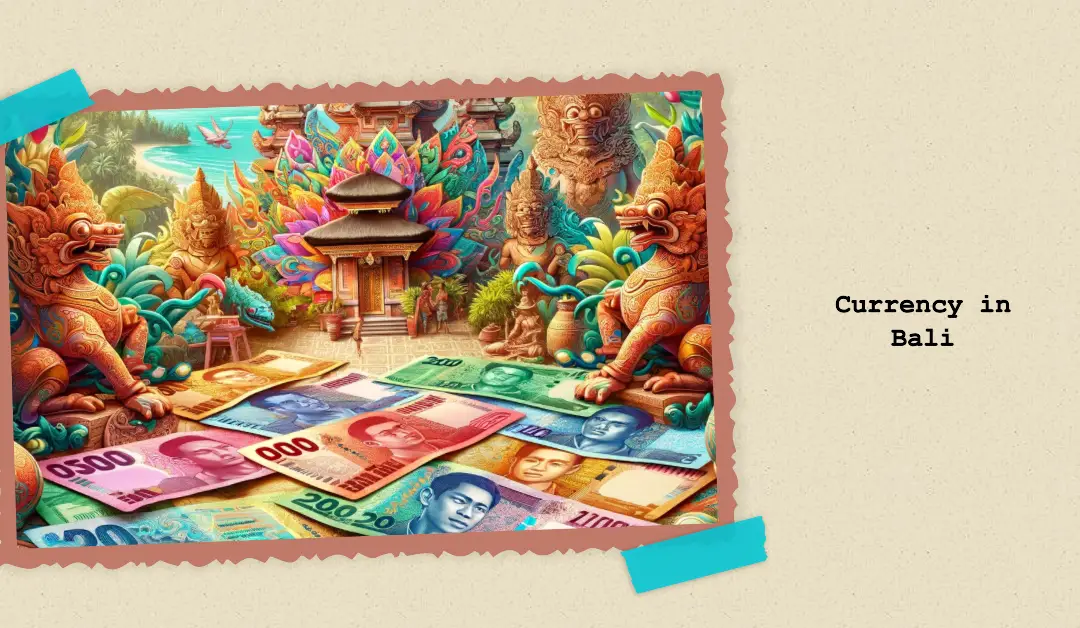Imagine arriving in paradise only to pull out your wallet and find…nothing. No cash, no cards, not even a single coin to buy a cold drink or a bite to eat after your long journey. Your dream vacation instantly turns into a nightmare.
This happens to countless visitors in beautiful Bali every year. Without understanding the currency in Bali and the money system on the island, you’re asking for hassles, headaches, and a quick drain on your travel fund.
But it doesn’t have to be that way! With just a few insider tips on how to obtain, manage, and spend money in Bali, you can sit back and enjoy your holiday while avoiding financial disasters.
In this definitive guide, you’ll discover everything you need to know to confidently handle money matters in Bali. You’ll learn:
- The scoop on Indonesian rupiah and where to get it
- How to pay for things in Bali like a local
- Clever ways to stretch your vacation budget
- Key mistakes that drain wallets fast
Armed with this knowledge, you can avoid money mishaps and make the most of your precious time and funds on one of the world’s top island paradises. Read on to unlock the secrets behind spending wisely in beautiful Bali!
What Currency Do They Use In Bali?

The official currency used in Bali is the Indonesian rupiah (IDR). The rupiah is the official currency of Indonesia and the only accepted form of payment across the entire country, including Bali.
You cannot use foreign currencies like the US dollar, Australian dollar, or Euro for purchases in Bali. All transactions, from buying souvenirs to paying for accommodations, must be made in Indonesian rupiah.
The currency code for the Indonesian rupiah is IDR.
Money Changers in Bali

As Bali is a major tourist destination, there are plenty of money changers available to swap your native currency for Indonesian rupiah.
You can find authorized money changers at the airport, in main tourist centers, and scattered throughout local villages. They offer better exchange rates than banks, so it’s recommended to change money through them.
Using Your Bank or Credit Card in Bali

While the rupiah is the official currency, using bank cards and credit cards issued in your home country is possible in Bali. However, there are some factors you need to consider when relying on plastic while traveling in Indonesia.
Transaction Fees
Every time you use your debit or credit card in Bali, your home bank likely charges a foreign transaction fee, usually around 3% of the total purchase amount.
Withdrawing Cash from Your Card
Many ATMs in tourist centers and urban areas accept foreign bank cards for withdrawing cash. The ATM will dispense Indonesian rupiah when you use your debit card.
Exchange Rates When Using Cards
The exchange rate applied on any credit or debit card transaction is set by your home bank, not the local rate in Indonesia. These bank rates build in an extra percentage above the true exchange rate, meaning you pay more compared to exchanging cash locally in Bali.
Alternative Methods of Payment
If you don’t want to rely solely on cards, there are alternatives for making purchases and withdrawals in Bali:
- Prepaid travel cards
- Mobile payment apps
- Traveler’s checks
- Wire transfers
Common Mistakes and Money Traps to Avoid in Bali
By understanding the local currency and payment options, you can avoid common money mishaps while visiting Bali:
- Don’t get lured into shady money exchanges on the street. Only use authorized banks and money changers.
- Reject demands to pay in US dollars or euros. Insist on the local rupiah currency to avoid poor exchange rates.
- Avoid card payments unless necessary to minimize foreign transaction fees. Use cash for most purchases.
Money Tips When Traveling in Bali
To make the most of your vacation funds in Bali, keep these money-saving tips in mind:
- Exchange currency in advance to avoid lining up at airport exchanges upon arrival
- Visit authorized money changers instead of banks to get the best IDR rates
- Shop markets and small vendors for the lowest prices on souvenirs and gifts
- Use ride-sharing apps and public transportation to get around cheaply
- Join free walking tours and visit temples with donation-only entry fees
- Eat at local warungs instead of tourist restaurants to save money on meals
What to Do if You Lose Your Bank Card in Bali
Losing your wallet or purse containing credit and bank cards can ruin a vacation. If it happens, immediately call your bank and cancel the cards. Most banks have international numbers to reach their customer service departments.
You can also visit a bank branch in Bali to see if they can help contact your home institution and cancel the cards on your behalf. Some may even offer emergency cash advances.
Exchanging Currency
| Location | Recommended Money Changers |
|---|---|
| Kuta | Bali Money Changer, PT Suci Money Changer |
| Seminyak | Bintang Bali Money Changer, Money Changer Authentic |
| Ubud | Ubud Money Changer, PT Central Kuta Money Changer |
| Canggu | Canggu Money Changer, Money Changer Express |
| Nusa Dua | PT Bank Rakyat Indonesia, PT Suci Money Changer |
Once you’ve arrived in Bali, you’ll need to swap your native currency for Indonesian rupiah to pay for everything during your stay.
Australian Dollar to Indonesian Rupiah
As one of the most popular tourist markets for Bali, converting Australian dollars (AUD) to Indonesian rupiah (IDR) is easy.
The current exchange hovers around:
1 AUD = 10,000 IDR
So for every Australian dollar, you will receive around 10,000 rupiah in exchange. This fluctuates daily based on market rates.
How to Exchange Currency in Bali
There are several ways to convert your native currency to Indonesian rupiah once you arrive in Bali:
- Bank ATMs
- Currency Exchange Outlets
- Travellers Cheques
Understanding Indonesian Rupiah
The rupiah is the official currency not just in Bali but the entire country of Indonesia. It is issued by Bank Indonesia, the nation’s central bank.
The currency code IDR is derived from the term “Indonesian Rupiah”. The banknotes feature images of important national heroes and landmarks of Indonesia.
Denominations of Rupiah: Notes and Coins
Rupiah banknotes come in six denominations:
Rp 100,000
Rp 50,000 Rp 20,000 Rp 10,000 Rp 5,000 Rp 2,000
The coins come in smaller denominations of:
Rp 1,000 Rp 500 Rp 200 Rp 100 Rp 50
The largest note is the 100,000 rupiah, worth approximately $7 USD. This makes carrying large amounts of cash easy compared to lower-value currencies.
Financial Planning for Your Bali Trip
| Expense | Cost Range |
|---|---|
| Hotel or Guesthouse | $140 – $420 |
| Meals | $35 – $105 |
| Activities & Entertainment | $70 – $210 |
| Transportation | $35 – $105 |
| Drinks | $35 – $105 |
| Total | $350 – $700 |
How much money you’ll need in Bali depends heavily on your travel style and preferences. Budget-focused backpackers can scrape by on $25-50 per day, while those staying in luxury hotels and eating at upscale restaurants should budget $150-300+ per day.
The Average Costs to Travel in Bali:
- Hotel or guesthouse – $20-60
- Meals – $5-15
- Activities and entertainment – $10-30
- Transportation – $5-15
- Drinks – $5-15
Total per day: Around $50-100 USD
So for a 7-day trip, bring $350 to $700 USD for a comfortable visit, plus more for shopping and tours. Costs also vary dramatically between busy tourist regions versus remote villages.
Managing Leftover Money at the End of Your Trip
Don’t get stuck leaving Bali with piles of leftover rupiah that are useless back home. Here are smart ways to manage extra cash:
- Spend down as much as possible on gifts, souvenirs, meals out on your last days.
- Exchange back to your home currency at airport kiosks or banks. Rates may be poor, but better than wasting money.
- Donate excess bills to a local charity. Many organizations accept rupiah donations.
Tracking AUD-IDR Exchange Rate
Keep an eye on the Australian Dollar to Indonesian Rupiah exchange rate in the months leading up to your trip and exchange currency when the rate spikes in your favor.
Good resources include:
Rates will vary daily, but in general:
- 1 AUD = 10,000 IDR is considered a strong exchange rate
- 1 AUD = 9,500 IDR is average
- 1 AUD = 9,000 IDR is weaker
Is it Cheaper to Convert Currency in Australia or Bali?
While exchanging AUD to IDR in Australia before your trip provides currency for the flight and airport arrival, you’ll get the best rates by waiting to exchange once in Bali.
Airport currency exchanges notoriously have high fees and poor exchange rates. Authorized money changers in Bali offer the best conversions to rupiah.
Take out a small amount of rupiah for arrival expenses before you leave, then exchange the bulk of spending money once in Bali through reputable money changers or banks for the optimal rates.
Buying Indonesian Rupiah Before Your Trip
If exchanging a portion of currency before departure, here are some options:
- Using a Travel Card
- Online Options and Collection Points
- Money Changers, Banks, and Airport Exchanges
Using Cards in Bali
While cash is preferred, debit and credit cards issued by major providers like Visa and Mastercard are widely accepted in Bali’s tourist regions.
Using a card means paying foreign transaction fees. But the convenience and security for big expenses like hotels may outweigh the fees.
Advantages of Wise and Revolut Travel Debit Cards
Wise (formerly Transferwise) and Revolut offer popular prepaid debit cards specifically designed for overseas travel. Benefits include:
- No foreign transaction fees
- Competitive exchange rates
- Low ATM withdrawal fees
- Accepted anywhere major cards are taken
- Safer than carrying cash
- Top up accounts from home country bank
You can use Wise and Revolut cards to pay directly for hotels, tours, and other major expenses. Use local ATMs to top up your card balance as needed during your stay.
By understanding all the currency options at your disposal you can enjoy your Bali vacation without money hassles.
Remember to watch exchange rates closely, use authorized money changers, notify your bank before traveling, and spend rupiah instead of foreign currencies. Follow these tips to maximize your travel funds and avoid financial headaches in beautiful Bali.

